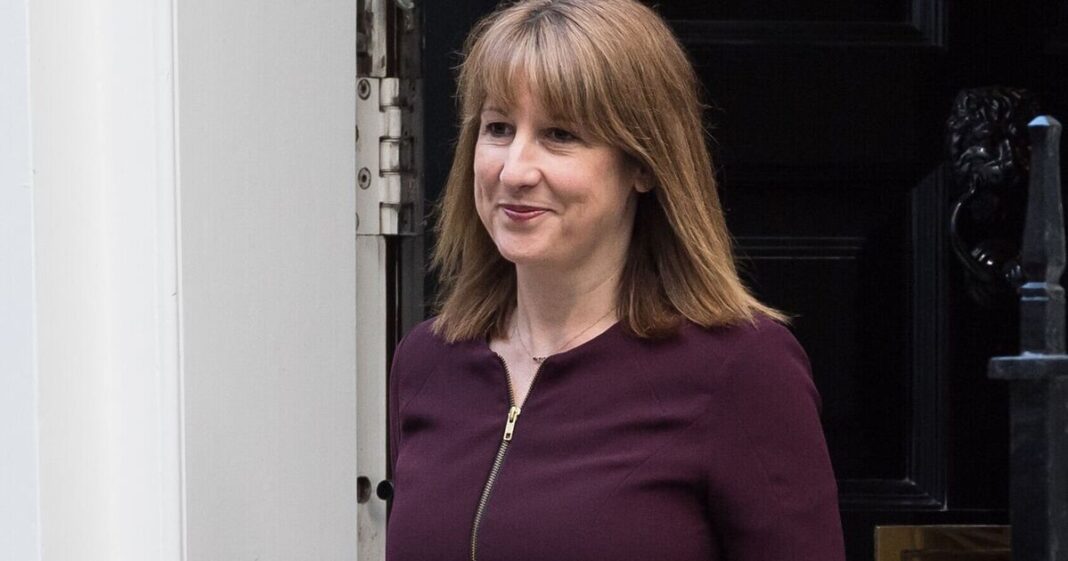Chancellor Rachel Reeves is expected to target pension savings in her second Budget next month – but one financial expert has argued there is little chance she will follow through. Sam Brodbeck, the Telegraph’s Money Editor, said there is growing concern in the City that Ms Reeves will clamp down on the tax relief offered to higher and additional-rate taxpayers.
She has already confirmed that from April 2027, any unspent pension savings will be included within estates for inheritance tax. Industry figures fear she could go further, launching reforms to dismantle one of the biggest incentives for long-term saving. Tax relief allows savers to put £100 into a pension for just £80 as a basic-rate taxpayer, £60 for a higher-rate payer and £55 for those on the top rate.
Some have predicted that the Chancellor could introduce a flat rate of tax relief instead, or scrap the higher and additional rate tax reliefs. However, Mr Brodbeck said he does not believe Ms Reeves has the political strength to push changes through. He wrote: “Luckily, I think the Government is too weak and politically inept to do it.”
Mr Brodbeck warned that curbing relief would “do serious damage to the financial resilience of the nation”, especially if paired with reforms to the tax-free lump sum, which he said is “in grave danger”.
He pointed to former Chancellor George Osborne’s previous attempts to overhaul pension tax relief, noting that Mr Osborne later admitted shelving the idea was one of his biggest regrets.
But Ms Reeves faces different obstacles, with Mr Brodbeck suggesting unions would fiercely oppose any cuts that left their members with smaller pensions. Former pensions minister Sir Steve Webb also warned that scrapping higher-rate relief would be complicated, take years to implement and risk breaking Labour’s manifesto promise not to raise taxes on workers.
Pension tax raid predictions
There are three pension tax reliefs potentially in the mix for the Chancellor to target in her upcoming Budget. Firstly, the higher and additional rate tax relief.
Gary Smith, senior financial planning partner and retirement specialist at wealth management firm Evelyn Partners, said: “With the autumn Budget on the horizon and the public finances in a parlous state, you can’t help thinking that this data was noticed in the Treasury – particularly as, with the lion’s share of tax relief going to higher and additional rate taxpayers, there might be an equity argument for reform. Tax relief at the two higher rates could just be cancelled, leaving a flat rate of 20% relief for everyone.”
The IFS has said that “limiting up-front relief to the basic rate of income tax would be a £15 billion a year tax rise, the vast majority of which would come from those who are in the top fifth of earners when making pension contributions”.
Mr Smith said: “While this step would provide the greatest saving for the Treasury, and would be the cheapest to administrate, it would cause uproar among higher-paid public sector employees – unless there was a controversial carve-out for the public sector – and do nothing to encourage pension saving among basic rate taxpayers. Indeed, the likelihood is that it would damage pension saving overall.
“So, it is thought that if the Chancellor were to target pension tax relief, then a flat rate at a probable 30%, which could be sold as handing a bonus to basic-rate taxpayers in order to encourage saving, is the favourite. However, it is still fraught with difficulties.”
The second relief the Chancellor could target is the pension tax-free lump sum allowance.
This entitlement allows most savers to withdraw up to 25% of their pension tax-free when they first access it, either before or after retirement. Since the abolition of the lifetime allowance in 2023, this lump sum has been capped at £268,275. Some predict Ms Reeves could reduce the percentage, or the cap to £100,000 instead.
Mr Smith said: “A reduction in tax-free cash would put a big dent in pension freedoms, and to many savers in the accumulation phase or nearing retirement. It will feel like the goalposts have been moved as they’re halfway down the pitch. It seems more likely that the cap would be reduced than the percentage, and £100,000 was rumoured before the last Budget, after it was floated by the IFS.
“The current maximum of £268,275 means that those who amass a pot of £1,073,100 (the old Lifetime Allowance) will be getting less tax benefit from making further pension saving. But a reduction to £100,000 would bring that threshold down to just £400,000 and might discourage some individuals from saving more than that.”
However, the pensions expert argued that tinkering with tax-free cash could weaken private saving at a time when state pension provision is coming under the spotlight as being unsustainable in the long term.
He added: “Restricting the Pension Commencement Lump Sum (PCLS) would not bring in extra revenue for the Government swiftly, it would be a long-term gain, so that could make this a less attractive move for Rachel Reeves, given how unpopular it would be.”
Thirdly, experts have suggested “salary sacrifice” schemes could be another target for the Chancellor.
Salary sacrifice is a Government-backed scheme designed to help both employees and employers save on tax. An employee agrees to give up part of their salary in exchange for the extra money being paid straight into their pension. This means that the employee’s official gross salary is reduced by the amount they sacrifice.
The benefit for the employees is that they can save National Insurance and income tax on their pension payments, giving them more take-home pay.
Mr Smith said: “Making pension contributions via salary or bonus sacrifice is a popular option for those whose earnings might fall into the 60% tax trap, a zone between £100,000 and £125,140 where the combination of high-rate tax and a tapered reduction in their tax-free personal allowance leads to a highly punitive effective income tax rate of 60%, which for many families is aggravated by the withdrawal of child-care benefits.
“The fault here lies with an unfairly structured income tax and benefits system that penalises people in this cohort disproportionately for increasing their earnings. Removing a legitimate mitigation strategy – increasing pension contributions via salary sacrifice – would seem harsh without reforming the real problem.”
He added: “Many other popular benefits are accessed via salary sacrifice – such as childcare, technology, bicycles and even electric vehicles – and cancelling this would inevitably be very unpopular at a time when the cost of living is putting huge pressure on families at a number of income levels.”
Ms Reeves will announce the Autumn Budget on November 26, 2025.


